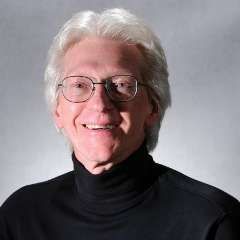Making a living as a modern music ensemble is tough in Prague, a city with a deep music culture firmly rooted in the past. The exception is the Berg Orchestra, a smart, creative chamber group led by Slovak conductor Peter Vrábel now in its 15th season. Given a prominent slot in this year's Prague Spring festival, the orchestra rose to the occasion with a razor-sharp performance of Heiner Goebbels’ Songs of Wars I Have Seen.
The piece was staged in collaboration with Goebbels, who watched attentively from the sound board during the performance. He has worked with the ensemble before, notably on a spirited production of his Schwarz auf Weiss for the Strings of Autumn festival in 2009. Their relationship is such that they discussed every detail of Songs of Wars, with the ensemble taking particular care to preserve the rhythms and intonations of the original English-language text, which was translated into Czech for the performance.
The text is taken from Gertrude Stein’s “Wars I Have Seen,” a memoir of the author’s experiences living in occupied France during World War II. Goebbels was attracted to the material because of Stein’s view of the cyclical nature of war and the gap she elucidates between public and private life during wartime, tending to mundane daily chores while bombs rain down on Italy. Setting sections of that to music resulted in what Goebbels describes as “something in between a concert, theater and reading a book.”
The set for the performance reflected the hybrid nature of the piece. On the front half of the stage, the strings, woodwind, keyboard and harp players – all women, all dressed in bright, casual colors – sat on a large rug amid a dozen table lamps, like they were giving a concert in someone’s living room. On the raised rear half of the stage, the percussion, horn and electronics players – all men, all dressed in black – provided a visual and musical contrast, especially with a theorbo and electric keyboard in the lineup.
The unusual blend of early and modern instruments is required for a wildly eclectic score. Stein refers to the prominent role of wars in Shakespeare’s plays, so Goebbels includes music that 17th-century composer Matthew Locke wrote for The Tempest. He creates compelling textures and atmospherics with electronic sound effects ranging from crackling static and hums to low drones that might be distant airplanes. The instrumental passages can turn in an instant from neoclassical to progressive jazz. And because Goebbels prefers non-actors reading his texts, the women divided their time between speaking and playing their instruments, which included singing bowls in a spiritual close.
In anything less than expert hands, this could quickly devolve into clutter and chaos. The Berg performance was just the opposite, a marvel of precision, subtlety and continuity, with the many moving parts fitting together seamlessly. Goebbels likes an element of uncertainty in his work, creating an unpredictable flow of sounds and images that leaves room for viewers to use their imagination. Vrabel and his players captured this quality beautifully, fashioning soundscapes that were both detailed and dreamlike.
The ensemble also did a fine job of articulating and maintaining the tension in the piece. The text deals mostly with mundane matters – food, the neighbors, a chicken run over by a careless truck driver – all of which take on a larger-than-life intensity in the wartime setting. This effect is heightened by the score, which sets the recitations against backdrops of plaintive instrumental solos or electric continuo. And drops in occasional incongruities like a jazz riff on the theorbo. It requires a high degree of musicality, and a versatility that not many specialty ensembles have. The Berg players pulled it all off with aplomb.
The evening opened with a short piece commissioned by the festival, an industrial “sinfonietta” by Czech composer and rock musician Petr Wajsar. Played live as a soundtrack to a kinetic film about a limestone quarry by Marek Bureš, it provided a raucous, entertaining apéritif.


